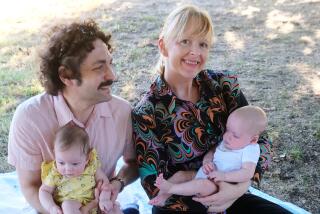Wycliffe Harming Cultures, Critics Say
- Share via
Not everyone is enthusiastic about Wycliffe Bible Translators and its mission to bring the Bible to all peoples.
In fact, the group has been the target of sometimes virulent attacks, most recently in the form of a 960-page book published this year by HarperCollins. “Thy Will Be Done,” by Gerard Colby and Charlotte Dennett, intertwines the stories of Nelson Rockefeller and Wycliffe founder William Cameron Townsend, charging that oil interests, the U.S. government through the CIA and missionary activities worked together to destroy Amazonian cultures.
Some of the charges echo those made in a 1982 book by anthropologist David Stoll, “Fishers of Men or Founders of Empire? The Wycliffe Bible Translators in Latin America” (Zed Press and Cultural Survival Inc.).
One central accusation is that Wycliffe (and its sister group, the Summer Institute of Linguistics), through activities in the Amazon Basin, worked to suppress indigenous Indian movements in the interest of keeping government-granted permission to operate in these countries.
More general charges have been made through the years, charges that have long been made against the missionary movement in general: that such work is a form of “cultural imperialism” in that it seeks to impose a Western religion on peoples who already have belief systems of their own.
Wycliffe has categorically denounced the conclusions of “Thy Will Be Done.”
Wycliffe members also deny that they have worked against the political interests of indigenous peoples, in Latin America or elsewhere.
“There are many cases where Wycliffe has fought for the rights of the indigenous people,” said Arthur Lightbody, a Wycliffe spokesman.
As for the charge that Wycliffe is imposing change on isolated groups, Lightbody called that view romantic. “Some people are jaded enough to believe that [people] can live in zoos and stay the same,” he said. “We feel culture is dynamic. It’s going to change.” Wycliffe members point to the social work they have done in hundreds of societies, from teaching to literacy to medical work. And the very act of putting an unwritten language in writing, they argue, is an empowering act with political implications.
Thomas N. Headland, a Summer Institute of Linguistics anthropologist based in Dallas, said the enmity between missionaries and anthropologists stems at least in part from a turf battle: Both purport to speak for native peoples, and both, in effect, have been guilty of the same sin of paternalism.
He organized what can be termed a sort of peace session at last year’s annual meeting of the American Anthropological Assn., a presidential symposium titled “Missionaries and Human Rights.” Headland set out to “encourage a dialogue” and believes that he at least made steps to that end, although many anthropologists reacted angrily to the symposium.
Ted MacDonald, an anthropologist and director of research for Harvard-based Cultural Survival, was one member of the symposium who was generally critical of the missionary human rights record. In a phone interview, he allowed that he has “mixed feelings” about Wycliffe.
MacDonald, who has conducted fieldwork near institute projects, is “not, overall, thrilled with the organization,” he said. “But to discount them totally would be wrong.”
He said that in many areas, Wycliffe has “provided some essential assistance,” primarily in helping to establish schools and offer medical help to people who do not otherwise have access to such services.
But, he said, more indigenous groups are making the claim that they should not have to rely on religiously affiliated organizations for such services. Members of such grass-roots opposition groups “are sick of living under patron-client ties,” MacDonald said. “They argue that [groups such as Wycliffe] are taking a role which should rightfully be theirs, and I totally agree. Their social role can be replaced, and probably should be.”
More to Read
Sign up for our Book Club newsletter
Get the latest news, events and more from the Los Angeles Times Book Club, and help us get L.A. reading and talking.
You may occasionally receive promotional content from the Los Angeles Times.









